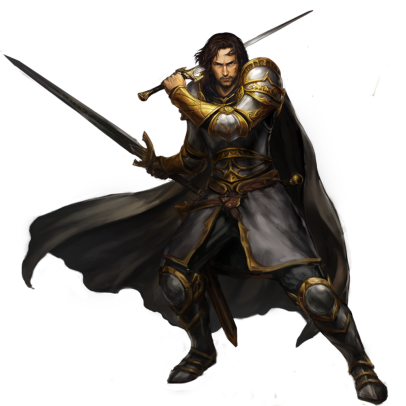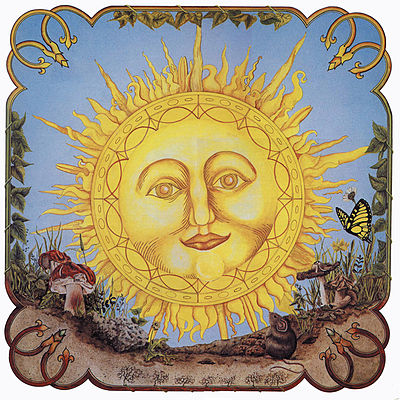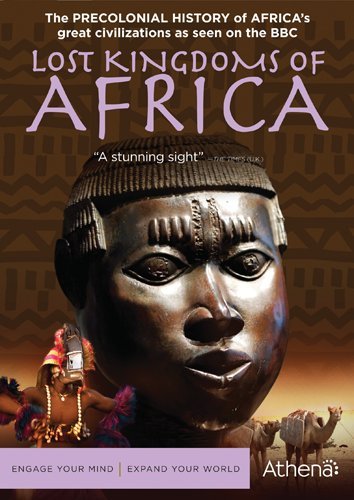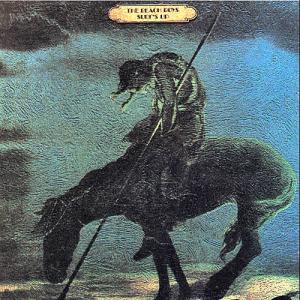In which Sir Roger learns the perils of a princess…
Read Episode 3
—4—
Mine is a dark and grisly business. However, nothing—and I mean nothing—has ever been as dark and grisly as my present peril. Working with wizards is one thing and dealing with women another. Rosa was something else all together.
I suppose I should update you on our progress. After my vision abruptly returned that fateful day last week, I realized Rosa had utilized some sort of transportation spell. Not understanding where we were I foolishly asked. That’s when I discovered what a nasty left hook Rosa delivers. After dusting off my backside and wiping the blood off my split lip, she icily informed me what a blasted pigheaded idiot, uncaring moron, and typical ungrateful male I was. If my listening skills did not improve, next time she’d drop me in the middle of the Bel Sea instead of so kindly delivering me to Jacumba, the capital of Javern and home of that tavern wench, Princess Lalena. As I rubbed my jaw, I decided I’d better listen a little more closely to Rosa.
During the next several days, I suffered ignominiously from ear pullings when I thought we should search in a different direction for the mysteriously missing princess, yanked hairs (from head, arms and, occasionally, legs) when I thought it was time for a beer, and a devilishly hard right uppercut if I paid attention to any woman longer than Rosa thought was necessary. Especially if I looked too long at Rosa.
Jacumba is a depressingly cheerful city. Everybody dresses far too colorfully; to my great discomfort, no one wears black or leather. I stood out like a non-human, few of which, in this homogeneous society, were rarely seen. The buildings were distressingly well-tended, well-built, and, well, too much alike for my tastes. It reminded me of one of those childhood theme parks. All it was lacking was a big mouse.
And the women! Nary a spot of flesh could be seen beneath their chins while their fat foofy dresses left a vacuity for the imagination to build upon. All in all, Jacumba reeked of benevolence and wealth.
This, of course, explained the disappearance of Her Royal Highness. It is with much certainty that I, too, would have chosen to desert this despicably clean, lackluster city had I dwelt there. Worse, the citizens behaved so darned diplomatic and friendly. There were no disparaging signs of crime, no motley mercenaries parading about, no painted women hooting from the balconies, no beggar children picking pockets. Even the dogs looked healthy. Embarrassingly, people smiled at each other.
This had led to our present dilemma. Where was the princess? How much longer would I be forced to shovel manure to cover the costs of our room, board and Rosa’s services while Rosa gallivanted about Jacumba seeking word of Princess Lalena’s whereabouts? Of course, “gallivanting about Jacumba” is an oxymoron.
The wizard (wizardess? wizardperson?) was getting under my skin. Being an h onorable warrior-type person, I couldn’t hit her back when she slugged me. Naturally, as Rosa took advantage of my position more and more, and my desire to belt her a good solid one increased, her yapping trap reminded me of the precarity of my situation. More than once I chose to unball my fist and remain an honorable warrior-type person than be transmogrified into a croaking toad-type person.
onorable warrior-type person, I couldn’t hit her back when she slugged me. Naturally, as Rosa took advantage of my position more and more, and my desire to belt her a good solid one increased, her yapping trap reminded me of the precarity of my situation. More than once I chose to unball my fist and remain an honorable warrior-type person than be transmogrified into a croaking toad-type person.
Other strange and morbid musings came unbidden to my sordid mind. Thoughts of holding hands, kissing, and—ugh—settling down with Rosa. Calluses were forming from constantly tapping my trusty Craftsman™ broadsword’s hilt in order to stifle this growing urge of domesticity.
My trusty Craftsman™ broadsword proved incapable, however, of stifling some serious heart palpitations when Rosa burst into the stable I was currently mucking out. Enthusiasm shone on her beauteous face, her large brown eyes shining. Either she couldn’t wait to tell me something or this town’s spirit had infected her.
“That damsel wannabe is back in town! The citizens are all turning out to welcome her with a parade!”
I tossed my shovel aside and grabbed my tunic. “Let’s go!”
“Wait a moment, farmboy. You’re going nowhere yet.”
Rosa whipped out her dainty wand, waved it and her free hand, then chanted something sounding like a pig being strangled. Suddenly a large wooden tub appeared above my head. Unfortunately, by the time I realized what was happening, cold water poured over me. Sadly, it was scented. Indeed, I now smelled like a flower garden. My heart no longer palpitated.
Minutes later, we were struggling to shove our way through the throngs and the scurrying paparazzi, their sketch pads flashing. Interestingly, my sudden change in status from muckraker to flower garden had a decided effect upon the populace. While catcalls of “pansy” and the like were hurled at me from the menfolk, the women gazed at me with long, lingering appraisals. Those poor, hapless people. They quickly learned the wrath of Rosa.
With the sudden influx of large croaking toads in the area and, more notably, the sudden disappearance of a plethora of Jacumba’s finest merchants and their wives, a trajectory leading directly to the street opened magically before us. The wrath of a woman conjurer can be a terrible thing.
Nonetheless, I soon encountered the humorous side of Rosa’s temper after securing front row lounge chairs. Jacumba’s finest merchants and their wives began popping back into sight. Most, to their discomfort, continued croaking and hopping for a few perilous moments before realizing their good fortune. As they slunk away, I found myself more and more impressed with Rosa and her magical abilities. Worse, my heart thudded anon.
As we patiently awaited Princess Lalena’s appearance, I spotted several heavily cowled figures slinking furtively throughout the throng. I leaned as close as I dared to Rosa.
“Have you observed the inordinate number of heavily cowled figures slinking furtively about? Do you think they might be assassins waiting for an opportune moment to strike down the princess?”
Rosa gazed about thoughtfully. “Hmmm. Either that or they’re potential husbands. Very well. I’ll clear a path to the castle for the wench.”
With that she whipped out her dainty wand and a few mystical passes and arcane mutterings (this time sounding like a lamb being burned alive) later, the air was once again filled with loud croakings. I gazed fondly at her dainty wand.
“I’ve just gotta get me one of those!” I whispered.
A foolish thing to say to a wizardperson, yes, but a sudden blaring of trumpets forestalled any caustic remark from my lovely counterpart.
As did the citizens of Jacumba, I craned my neck to catch a first glimpse of the fair Princess Lalena. Out of the corner of my eye I noted Rosa glowering. Nonetheless, I continued craning. Soon the stomp-stomp-stomp of the Royal Guards could be felt as well as heard. Then the glitter of the sun on their lances and plumed helms sparkled, producing an appropriately dazzling effect upon the populace.
As a long line four guards wide strutted past in their resplendent white and gold livery, the cheers began. Behind them a group of women with startlingly short skirts, tight sweaters, and really big, uh, smiles cavorted past. In each hand they shook what looked like multi-colored mop heads. Suddenly, directly in front of us, they halted. Quickly the cheers reached a fevered pitch as the women pumped their mop heads into the air and cried out, “Give us a P!”
The crowd roared back with a resounding “P!” In what then sounded like some sort of spelling contest, the women proceeded to spell out “Princess.”
I turned to Rosa and asked, “Who are these women?”
“Ladies-in-waiting.”
As the scantily clad ladies shouted, “Who do we love?” (to which the throngs, of course, responded deafeningly, “Princess Lalena”), the princess’ flower-bedecked carriage rode into view. She waved listlessly at her adoring fans while my heart nearly thudded its way out of my chest. Despite a languid face, I realized the talent of whosoever painted her oil was sadly lacking. Her beauty was astonishing. Here was a woman not only worth saving from whoever’s dire clutches, but also worth giving up my trusty Craftsman™ broadsword for.
“With a face that sour,” muttered Rosa, “She must be getting married or executed.”
I laughed while continuing to admire the princess’ astonishing beauty.
“Oh Rosa, you’re such a…”
Obviously I failed to complete the sentence. With good reason. I had been poisoned with the most deadly poison of all.
Love.
On to Episode 5
 The best of these rumors was a mysterious band called Klaatu, whose debut album “3:47 EST” came out of seemingly nowhere in 1976. No band members were listed anywhere, adding to the mystery. Riding the wave of these rumors, the album made it into the US top 40 albums chart. At the time, the Beatles were still my favorite band, and I had several debates with friends as to whether this was really the Fab Four, or George Harrison with friends, or John Lennon, etc.
The best of these rumors was a mysterious band called Klaatu, whose debut album “3:47 EST” came out of seemingly nowhere in 1976. No band members were listed anywhere, adding to the mystery. Riding the wave of these rumors, the album made it into the US top 40 albums chart. At the time, the Beatles were still my favorite band, and I had several debates with friends as to whether this was really the Fab Four, or George Harrison with friends, or John Lennon, etc. onorable warrior-type person, I couldn’t hit her back when she slugged me. Naturally, as Rosa took advantage of my position more and more, and my desire to belt her a good solid one increased, her yapping trap reminded me of the precarity of my situation. More than once I chose to unball my fist and remain an honorable warrior-type person than be transmogrified into a croaking toad-type person.
onorable warrior-type person, I couldn’t hit her back when she slugged me. Naturally, as Rosa took advantage of my position more and more, and my desire to belt her a good solid one increased, her yapping trap reminded me of the precarity of my situation. More than once I chose to unball my fist and remain an honorable warrior-type person than be transmogrified into a croaking toad-type person. I’m referring to a recent (2010) BBC production, Lost Kingdoms of Africa, a two-disc set you can get
I’m referring to a recent (2010) BBC production, Lost Kingdoms of Africa, a two-disc set you can get 
 The crowning jewel of this run was 1971’s Surf’s Up. From its evocative cover (completely removed from their surfing roots) to the final chords of the title track, this is a pop masterpiece nearly on par with their classic Pet Sounds (the best pop album ever, IMO). Unlike most pop hits of the time or their 60s material, there are almost no simple boy/girl songs. Instead, it is full of introspection or politically charged lyrics, beginning with the anti-pollution Don’t Go Near the Water. This is followed with one of Carl Wilson’s first solo composition and one of the Beach Boys’ most beautiful songs ever, Long Promised Road, an reflective look at the roadblocks our past throws up as we try to push forward to our future.
The crowning jewel of this run was 1971’s Surf’s Up. From its evocative cover (completely removed from their surfing roots) to the final chords of the title track, this is a pop masterpiece nearly on par with their classic Pet Sounds (the best pop album ever, IMO). Unlike most pop hits of the time or their 60s material, there are almost no simple boy/girl songs. Instead, it is full of introspection or politically charged lyrics, beginning with the anti-pollution Don’t Go Near the Water. This is followed with one of Carl Wilson’s first solo composition and one of the Beach Boys’ most beautiful songs ever, Long Promised Road, an reflective look at the roadblocks our past throws up as we try to push forward to our future.